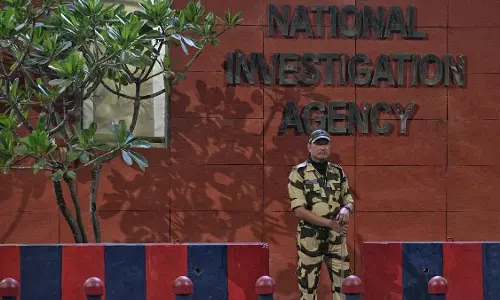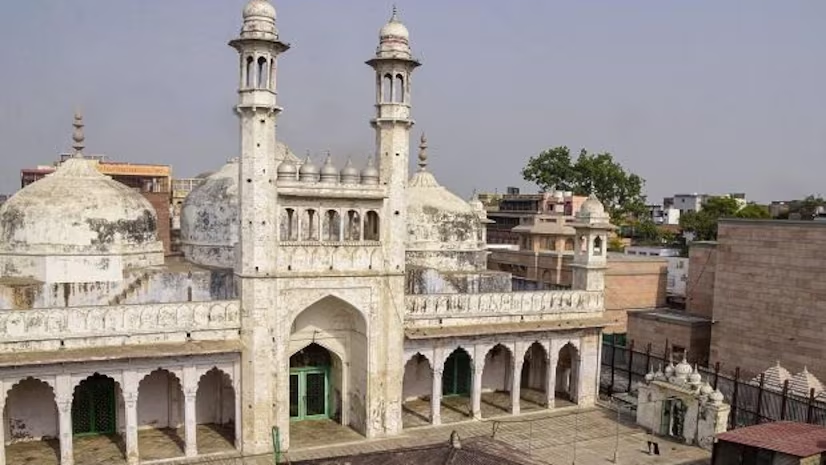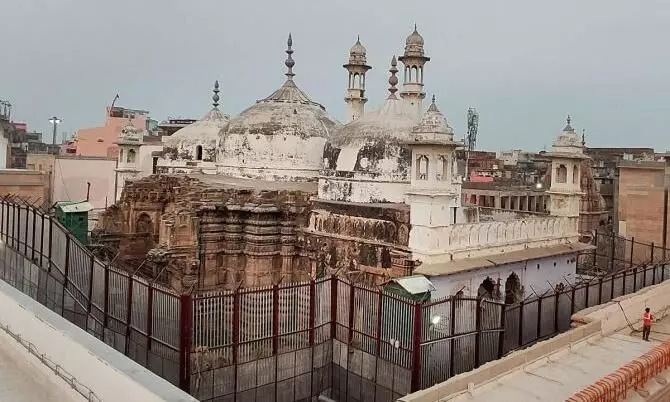
ASI submits sealed survey report of Gyanvapi Mosque in Varanasi court
text_fieldsVaranasi: The Archaeological Survey of India (ASI) on Monday submitted its report on the scientific survey of the Gyanavapi Mosque complex before the Varanasi District Court in a sealed cover.
The development came a week after the court had given an extension to the ASI to submit the survey report on the 17th-century mosque complex.
A petition has been moved by the Anjuman Intezamia Masjid Committee to be provided the content of the survey report; that the court should ensure the report was not leaked; and that the report should be given to any of the parties only after they submitted a personal undertaking that they would not share it with anyone else, reports The Hindu.
The report will be shared with the petitioners on December 21 and a copy of it will also be sent to the apex court.
In his response, the counsel for the Hindu petitioners requested the court to make the report public.
The ASI was carrying out a scientific survey of the Gyanvapi mosque premises, located next to the Kashi Vishwanath temple, to determine whether the mosque was constructed over a pre-existing structure of a Hindu temple.
 Also Read - Bihar official escapes kidnapping after car gets stuck in a drain
Also Read - Bihar official escapes kidnapping after car gets stuck in a drain
The district court had, on July 21, asked the ASI to conduct the in the entire mosque premises except the ‘wuzukhana’. The order was issued taking on record an undertaking made on behalf of the ASI that no excavation would be done at the site and no damage would be caused to the structure.
The survey was suspended as soon as it began after the matter reached the Allahabad High Court, which upheld the lower court’s order.
The survey also remained suspended for a brief period of time when the mosque committee petitioned the Supreme Court. It commenced again on August 4 after the Supreme Court’s nod for it.
It took several months for the ASI to complete the survey and file the report, which runs into hundreds of pages along with annexures and was submitted to the court on December 18.
The survey was ordered during the hearing of a suit filed by one Rakhi Singh and four other Hindu women, seeking the right to worship Hindu deities within the Gyanvapi mosque premises all-year round.
In their claim, the plaintiffs had said that the Gyanvyapi mosque and its premises were once a Hindu temple. It was the Mughal ruler Aurangzeb who had demolished the temple and built the mosque above it, they said.
The maintainability of that suit was challenged by the Anjuman Intezamia Masjid Committee, which filed an application under Order 7 Rule 11 of the Code of Civil Procedure arguing that Hindu worshippers’ suit was barred by law, that is, the Places of Worship Act, 1991.
District Judge Vishvesha ruled that neither the Places of Worship Act, 1991, nor the Waqf Act, 1995, nor the U.P. Shri Kashi Vishwanath Temple Act, 1983 bar the suit and that the “plaintiffs will have the right to prove their averments by cogent evidence”.
Rejecting the objection to the suit, the Varanasi court specifically held that since the Hindu worshippers claimed that the Hindu deities were being worshipped by them inside the mosque complex even after August 15, 1947, the cut-off date provided under the Places of Worship Act, the 1991 Act would therefore have no applicability in the case.























